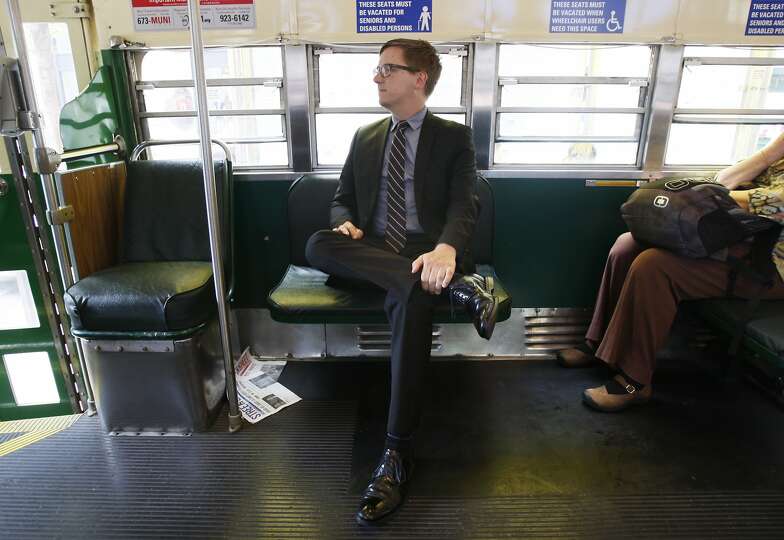THE SAN FRANCISCO ARTS COMMISSION SUPPORTS CULTURAL EQUITY
A Statement from the Staff of the SFAC
This week at City Hall, a Special Meeting of the Full Arts Commission was convened to provide further discussion of a recent report from the Office of the Controller. It was the second hearing the SFAC convened on the matter, and was as much an opportunity for concerned citizens and stakeholders to share their thoughts with commissioners as it was a chance to hear more about the report, what it is, and what it isn’t.
We at the Arts Commission were heartened to see so many members of the arts community at the meeting, most of whom came out to voice their support for the Cultural Equity Grants Program (CEG).
SFAC Commissioners joined that sentiment. As Commission President PJ Johnston said at the Dec. 12 meeting:
“We said it last week, we’ll say it again today, and we’ll keep on saying it: We believe in the Cultural Equity Grants program, we wholeheartedly support Cultural Equity grant recipients, and we intend to protect funding for Cultural Equity in the arts.”
The staff of the SFAC, like the commissioners who spoke this week and last, share the community’s passion for a vibrant and diverse cultural community, and we want to reassure you that the Arts Commission unequivocally supports the Cultural Equity Grants Program.
In order to foster continued support for this and other critical programs of the SFAC, and to further dispel any lingering misconceptions about the Controller’s report and the staff response, the following is a recap of some of the key points emphasized at the Dec. 5 and Dec. 12 meetings:
1. The Controller’s Report was an audit of ALL of the SFAC’s programs and their fiscal policies; staffing issues; and granting practices. It was not solely focused on CEG. And it was not in any way a critique of grant recipients.
2. The official staff responses to the Controller’s Report, which were required by city policy, were intended to assure the Controller that the SFAC will comply with city law. The responses were not meant to indicate that staff will unilaterally change agency policies or management of the Cultural Equity Endowment Fund. We are proud of the fact that CEG has become a national model for the rest of the country, and we have no intention of abandoning the mission of the CEG program, cutting funding to cultural equity recipients, or making significant policy changes without commissioner and community input.
However, in order to comply with city policies and regulations, staff will be recommending procedural changes to CEG grantmaking that will allow the Commission to bring all SFAC programs into legal compliance.
3. The Controller’s Report provides specific findings that will offer guidance to the new director, and to the Commission, on how all SFAC programs can be better and more efficiently managed. By addressing the agency’s inefficiencies – such as administrative overhead fees that have become inflated over the past several years – we anticipate that funding and grant resources to CEG grantees will actually increase.
4. While the report recommended that CEG cease funding and administering certain grant programs outside of its legal authority, it did not suggest the SFAC cease funding these specific grants altogether-and we have no intention of eliminating funding to these grant programs. What we will be doing is looking into ways in which we can make these grant categories legally compliant.
The Controller’s Office recommended working with the Board of Supervisors and the Mayor’s Office to seek appropriate legislative remedies, and we anticipate our new director and our commissioners will do just that. In the meantime, the Native American Grant deadlines for this fiscal year will move forward as planned, shepherded by the agency’s Director of Community Arts and Education (CAE), Judy Nemzoff and Jaime Cortez, who managed those grants under the CEG Program.
5. The Controller’s Report called out the SFAC’s lack of a clearly stated policy with regard to awarding simultaneous grants to the same organization within the same grant cycle, and recommended that our granting practices ensure that funds are awarded in such a way that they reach as many community programs and projects as possible. Unfortunately, this finding has created much confusion in the community.
Two things are important to recognize: First, this finding should not be interpreted as any kind of criticism of the grantee organizations identified in the report as having received multiple grants. Receiving multiple grants from CEG should not in any way reflect negatively upon grant recipients. Indeed, the SFAC recognizes and applauds the exemplary work of these incredible organizations who, because they represent the best in their field, have won multiple grants through a highly competitive process. As several commissioners and Interim Director JD Beltran pointed out, their success in winning grants is a testament to their exceptional work and to their value to the community. The Controller’s Office found shortcomings in the SFAC’s articulated policies with regard to grantmaking, not with grantee organizations.
As President Johnston said at the Dec. 5 meeting, “We love our Cultural Equity grantees. The fact that a tremendous organization like Galleria de la Raza received more than one grant in a given year just shows how incredible the organization is, and how hard they’re working to stay competitive.”
Second, the SFAC, both staff and commissioners, recognize the value in awarding more than one grant to the same organization, based on a variety circumstances. In response to the Controller’s recommendation, the SFAC will work towards establishing and articulating a clear policy with regard to awarding multiple grants within a single grant cycle. To that end, we will be conducting an assessment of best granting practices and will refine the agency’s policy on this issue.
As Johnston said: “I don’t think anyone on this commission would support eliminating multiple grant opportunities.”
6. Any significant policy changes affecting any program at the SFAC will, as always, be made by the body that oversees this agency, the Arts Commission, and will be made in full consultation with the new Director of Cultural Affairs, Tom DeCaigny, and with the arts community itself.
While we recognize that the Controller’s Report generated significant, and legitimate, concerns among many members of the arts community, it is important to recognize that independent financial audits of city agencies and their programs are appropriate, common and necessary. The purpose of this report was to help the agency shed light on fiscal and management concerns that had been raised by many commissioners, as well as many community stakeholders, over the past few years. The public scrutiny of public programs and public funds is an opportunity for the SFAC to identify the areas that must be improved, so that the agency can better serve the arts community and the city as whole, by becoming a more transparent, efficient and fiscally responsible organization. The Controller’s Review provides us with a roadmap as we move forward with policies that will ensure our shared goal of continuing support for San Francisco’s rich and diverse arts and cultural organizations.
If you have any questions, please feel free to contact Kate Patterson at kate.patterson@sfgov.org.
We wish you a happy holiday season!


